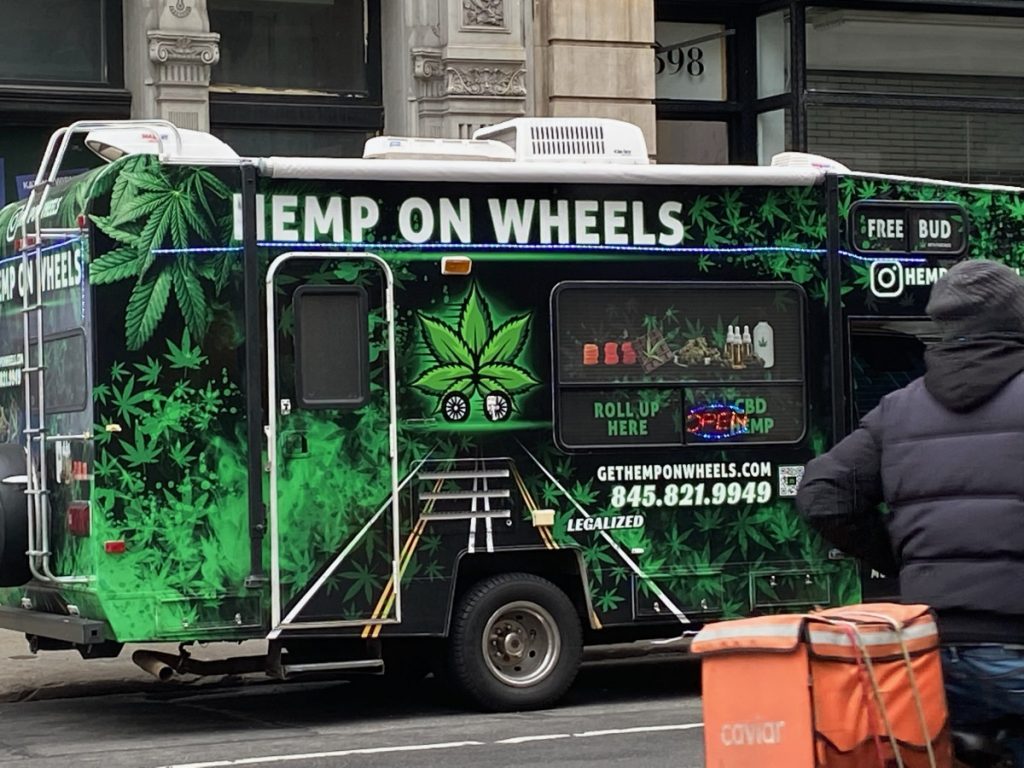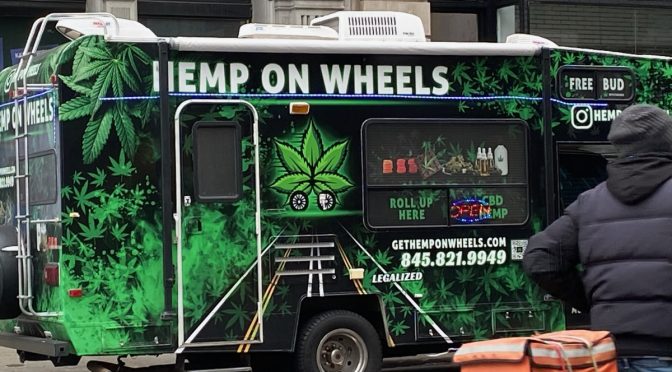Fly-by-night pot shops operate everywhere in New York City, with little attempt to stop them. A new state legislature was elected; so can a new crop of legislators put Pandora’s evils back into the box? Can the state admit failure and undo its reckless law which legalized cannabis?
Meanwhile, Canadians who invested in cannabis stocks and companies lost $131 billion dollars. In Colorado, on November 30, it was reported that the cannabis industry has seen the largest downturn ever. After three years of cannabis in Illinois, sales are flat, despite the addition of new licenses.
So why did New York legislators fall for a failed policy?
It’s the Bigger Fool Theory: If you bought say a gas station on the same corner where 6 other operators had failed, why would you do the same? They may be fools, but you were the bigger fool. New York is the biggest fool of all! Officials should have known that the black market expands and can’t be controlled once you legalize pot.
Before New York legalized pot, legislators had evidence from the country’s largest city, Los Angeles, that hundreds of pot shops would open long before the state-licensed dispensaries.
New York’s City Councilor complains
Responding to the huge number of illegal cannabis sellers in Manhattan, New York City Councilwoman Gale Brewer wrote a letter to New York Cannabis Control Board and others:
“In addition to immediate public health risks associated with selling unregulated ingestible and combustible cannabis – including to New Yorkers under age 21 – I am concerned that the free-for-all environment will become entrenched and disincentive sellers from seeking licensure at all.”
“Licenses sellers will be forced to compete with unregulated (presumably less expensive stores, and the city and state will miss out on much-needed tax revenue—tax revenue also meant to fund the MRTA’s laudable social equity initiatives.

Brewer’s staff visited 61 storefronts on the Upper West Side between November 22 and December 7, 2022 and found 26 locations selling cannabis! Most of these stores also sell tobacco products.
Kew Gardens becomes Weed Gardens
Manhattan is not the only borough hit heavily by unlicensed dealers. The New York Post reported on December 4 that “Kew Gardens is turning into Weed Gardens.” The most recent shop called “Pre-Rolled Joint” sells pre-rolled joints as well as “flowered marijuana, vapes, oils and numerous edibles.” All the products come from California, even though New York farmers hold $750 million worth of unsold weed.
Social justice critics say the rollout of New York’s cannabis program is turning into a bad trip.
Making the drug legal and regulating it is not going to make a dangerous drug less dangerous. Legalization legitimizes a dangerous drug, which, of course, leads to a false perception of safety, and more use.
When will Governor Hochul, Mayor Adams and the state legislature wake up to their big mistakes? The time to overturn legalization is now!
Illegal sales continue to outpace the legal market in California
There was plenty of evidence in 2019 that commercialized marijuana doesn’t work. As Politico reported in 2019, legalization was supposed to be a tax windfall, but fell short. After 4 years of commercial pot in California, most of sales are still on the black market. Earlier this year, Governor Gavin Newsom signed several bills to help its struggling marijuana market, and to steer people to buy state-regulated weed, instead of on the black market.
Smaller states are smarter than New York
When New York passed a bill to commercialize marijuana in 2021, legislators pushed the idea that they could correct the “war on drugs” and bring social justice to communities affected by drug convictions.
Not everyone buys such simplistic arguments. In the midterm elections, three out of five states with a marijuana ballot rejected marijuana legalization. Read our past article, Is Marijuana Good for Social Justice?
The “War on Drugs” is over, and everyone outside of New York agrees. Rachel Lu stated this point when she published an article last week. For American Spectator, she wrote about slowing the growth for legal weed:
“Marijuana…does not have deep roots in American history, culture, and religion. Its impact on American life was negligible until the 20th century, and even today, only about half of American adults report having tried it. Pot consumption has grown rapidly over the past decade, but regular users still represent less than 20 percent of the population. Cannabis is not a normal or expected part of American weddings, funerals, or banquet dinners.”
“Prohibition may not apply to this case. Cannabis realistically can be restricted in American life, in ways that alcohol cannot.”

